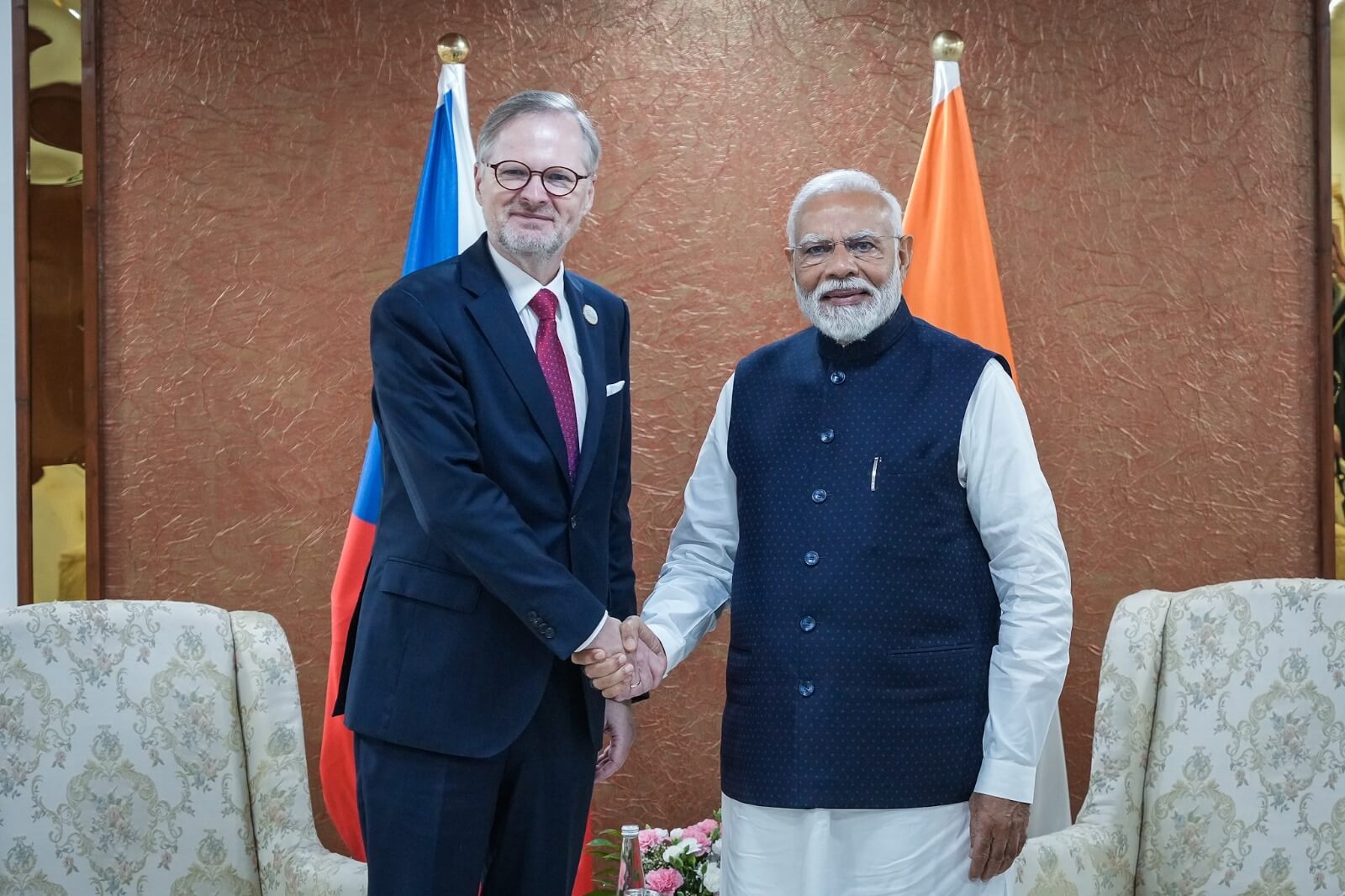India and the Czech Republic pledged to strengthen defence ties and enhance deeper engagement within the Indo-Pacific region through an “open, free, inclusive, and rules-based approach with respect for sovereignty and territorial integrity.”
On Wednesday, Indian PM Narendra Modi met his Czech Republic counterpart, Petr Fiala, on the sidelines of the 10th Vibrant Gujarat Global Summit (VGGS) in Gandhinagar, Gujarat, where both leaders reviewed bilateral relations and discussed various sectors.
Had an excellent meeting with Prime Minister @P_Fiala of Czech Republic on the sidelines of the @VibrantGujarat Summit. We discussed deepening bilateral cooperation in sectors like trade, energy, science, innovation and defence. 🇮🇳 🇨🇿 pic.twitter.com/Bh7pEMuLZ7
— Narendra Modi (@narendramodi) January 10, 2024
Indo-Czech Defence Cooperation
According to a joint statement released by the Indian Ministry of External Affairs (MEA), “Both Partners underline the importance of innovations in the defence field and the defence industry.”
The countries intend to strengthen their cooperation through R&D, training, and innovative production solutions integrating Czech and Indian stakeholders.
Additionally, both sides aim to expand their proposed cooperation under the framework of the Joint Committee on Defence Cooperation formed by the India-Czech Republic Defence Cooperation Agreement, which was signed in Prague on 21 October 2003.
The two leaders expressed their desire to enhance the dialogue on cyber security and countering hybrid threats through cooperation among key agencies and stakeholders, as well as the sharing of best practices, skills, and capacity building, the statement read.
Czech-Indian relations are developing successfully. With @narendramodi, we endorsed the Joint Declaration for Strategic Partnership in Innovation which confirms our interest in deeper mutual cooperation.
— Petr Fiala (@P_Fiala) January 10, 2024
India is a very promising partner for us, with a dynamically developing… pic.twitter.com/6t1PkrzsYn
Partnership on Innovation
Modi and Fiala expressed “their readiness to support G2G, B2G, B2B, academic and other key stakeholder’s partnerships to encourage and expand cooperation in the fields of innovation driven trade, joint ventures and investment.”
India and Czech pledged to enhance bilateral commerce and encourage flows of investment and services; both leaders will contribute to promoting scalable solutions related to each other’s policies, such as “Industry 4.0” or “Make in India.”
Per the statement, New Delhi and Prague underlined their commitment to strengthening the work of the Joint Commission on Economic Cooperation, which was established under the India-Czech Republic Economic Cooperation Agreement, signed in Prague on 8 June 2010.
On Green Energy, Agriculture and Smart Cities
“Both Partners will work together in tackling issues related to climate change and wish to advance their cooperation in the clean energy transition, disaster risk reduction and use of innovative clean technologies,” the statement read.
Modi and Fiala expressed interest in enhancing cooperation on renewable energy development and other energy-related issues, such as green hydrogen, energy efficiency and savings, energy conservation, decarbonisation, green digital technologies, and smart power distribution networks.
During the talks, both leaders emphasised the importance of promoting the peaceful use of civil nuclear energy and reiterated their support for fully developing and deepening bilateral civil nuclear cooperation.
In the area of sustainable agriculture and the food industry, the leaders aim to promote the transfer and use of food processing and food industry technologies, machinery, and equipment by strengthening ties between the public and private sectors, including research and educational facilities.
The statement indicated that both PMs discussed the possibility of exploring a collaboration in the field of “smart cities” to develop innovative technologies and approaches.
Finally, India and the Czech Republic vowed to strengthen bilateral relations based on long-standing ties, mutual understanding, and a shared desire for international peace, stability, democratic ideals, and the rule of law.

